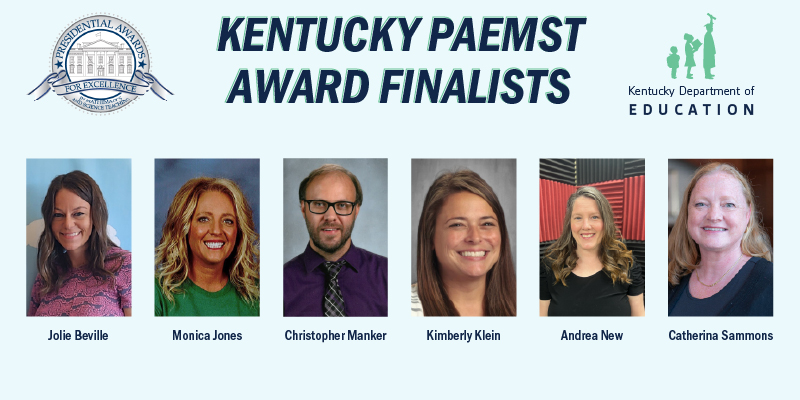By Mindy Curless
melinda.curless@education.ky.gov
The Science Through-Course Task (TCT) Bank for the 2017-18 school year is now available and can be accessed through this Kentucky Department of Education (KDE) webpage.
TCTs are intended to be used by grade level teacher teams so that science educators grow together using a 3-step collaborative process around a common formative assessment task. In this process, teacher teams:
- plan for using the task,
- facilitate the task with students, and
- evaluate student work and reflect.
The tasks currently in the TCT Bank are the same tasks from last year, although they have been revised. KDE selected teams of Kentucky teachers to conduct revision work last June. Two teachers who used a task in the 2016-17 school year collaborated to review student work and revise the task based on their experiences, input from other teachers and support from KDE.
In addition to the revised tasks, more Kentucky teachers are developing new tasks. As a result of this work, up to six more tasks will be added to the TCT Bank this year at each grade level, significantly expanding the task choice. As teacher teams develop the tasks, they use them with their own students, and then revise the tasks based on those experiences. New tasks should be uploaded to the SharePoint site beginning in November and continuing through January.
Confusion about the purpose and appropriate use of science TCTs still exists. Here’s what you need to know:
- All teachers responsible for Kentucky Academic Standards for Science must use TCTs with their students, kindergarten through high school. Each teacher should use at least two tasks this school year in every class or course they teach.
- Teachers should collaborate with other teachers, using the recommended collaborative TCT process. Teachers should not use TCTs in isolation.
- The TCT experience is as much about the collaborative experience for teachers as it is about the task itself. Collaboration provides a means for teachers to effectively refine their support of student attainment of the standards.
- TCTs are designed primarily to obtain evidence of student performance with Science & Engineering Practices and Crosscutting Concepts as they make sense of phenomena. Science “content” provides the context for the task, but is not the focus of the assessment. Nevertheless, it is the sense-making experience for students that provide evidence of attainment of the standards.
- The TCT experience is a formative assessment experience that should provide information to both teachers and students. Students should understand that the task is intended to help them both develop and evaluate their ability to use the Science & Engineering Practices and Crosscutting Concepts to make sense of things. While students typically produce a final product with each task, this product is not produced for a grade. The final product should be viewed as a formative indication for how each student’s science skills are developing – areas of strength and weakness – and both teachers and students should focus on ways to improve based on information gathered.
- A “testing environment” is not desired during a TCT experience. Teachers should strive for a safe environment for students to make sense of the phenomenon within the task. Thus, teachers are encouraged to collaboratively plan for facilitation questions and prompts that stimulate student thinking rather than direct student thinking. Teachers should provide support to help students access the task – such as through intentional questioning or other supportive strategies. If a student cannot access the task, then no evidence of student performance is obtained.
- Resources to support teachers through the TCT process are available on the TCT Resource Bank home page in SharePoint.
- Each district will submit one piece of student work for each of two different tasks at each grade level in the late spring of 2018. Collected student work will be used for calibration of the science assessment system and teacher professional learning. It will not be used to evaluate teachers, schools or districts.
For additional questions, contact STEM Consultant Melinda Curless at melinda.curless@education.ky.gov.




Leave A Comment